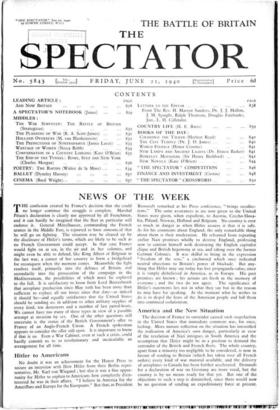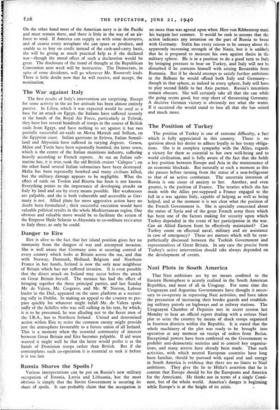America and the New Situation
The decision of France to surrender caused such stupefaction in the United States that immediate comment was, for once, lacking. More mature reflection on the situation has intensified the realisation of America's own danger, particularly in view of the revelation of Nazi intrigues in South America and the assumption that Hitler might be in a position to demand the surrender of the British and French fleets. The whole country, apart from a minority too negligible to be considered, is now in favour, of sending to Britain (which has taken over all French orders) every kind of war material available, and the delivery of aeroplanes to Canada has been further accelerated. Demands for a declaration of war on Germany are more vocal, but the country is by no means ready for that yet. But one of the objections to such a step is diminished, since there would now be no question of sending an expeditionary force at present. On the other hand most of the American navy is in the Pacific and must remain there, and there is little in the way of an air- force to send. If America can supply us with some destroyers, and of course every aeroplane she can spare or produce, and enable us to buy on credit instead of the cash-and-carry basis, she will be giving as much practical help as if she declared war—though the moral effect of such a declaration would be great. The disclosure of the trend of thought at the Republican Convention next week will be instructive. The Democrats, in spite of some dissidents, will go wherever Mr. Roosevelt leads. There is little doubt now that he will receive, and accept, the nomination.































